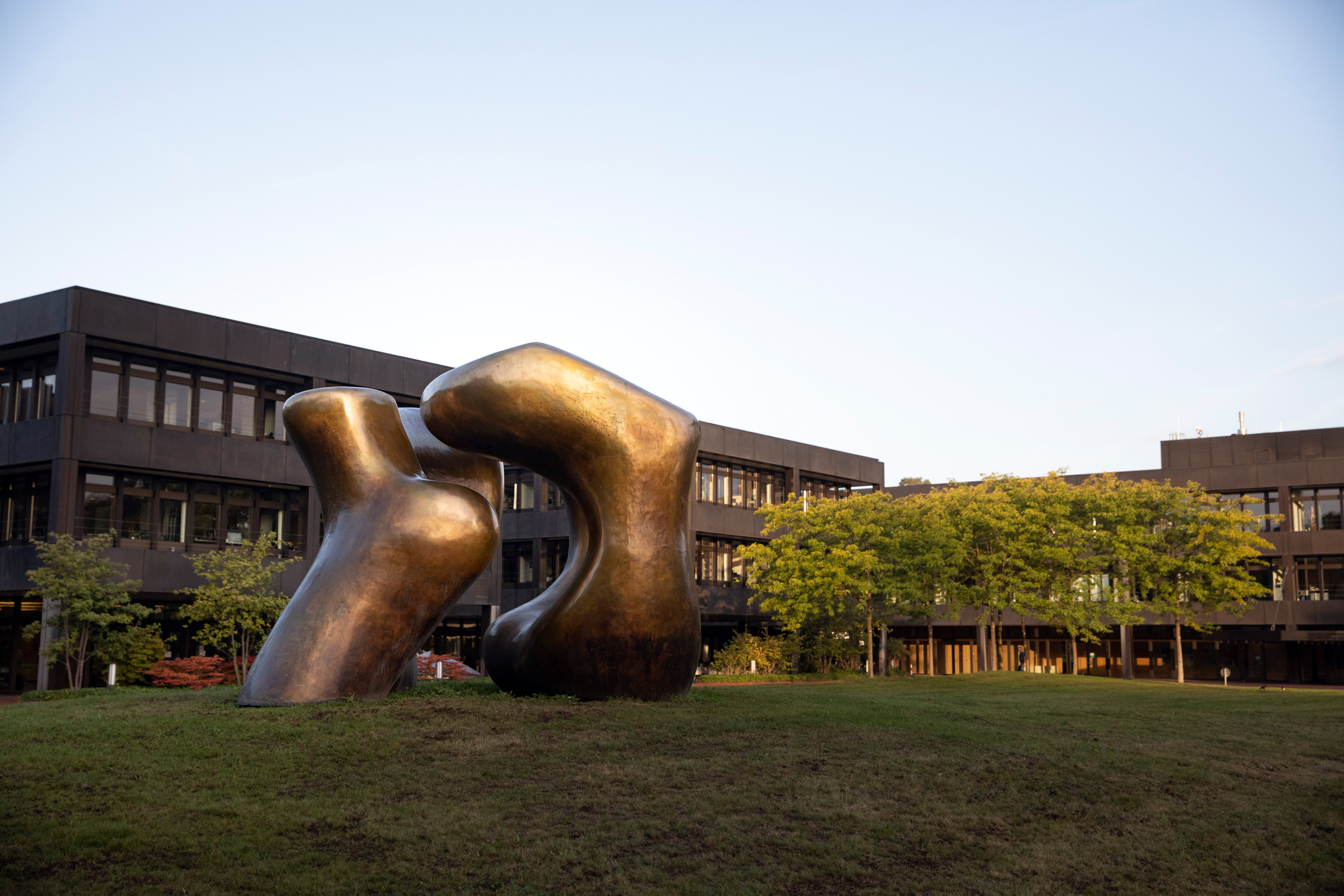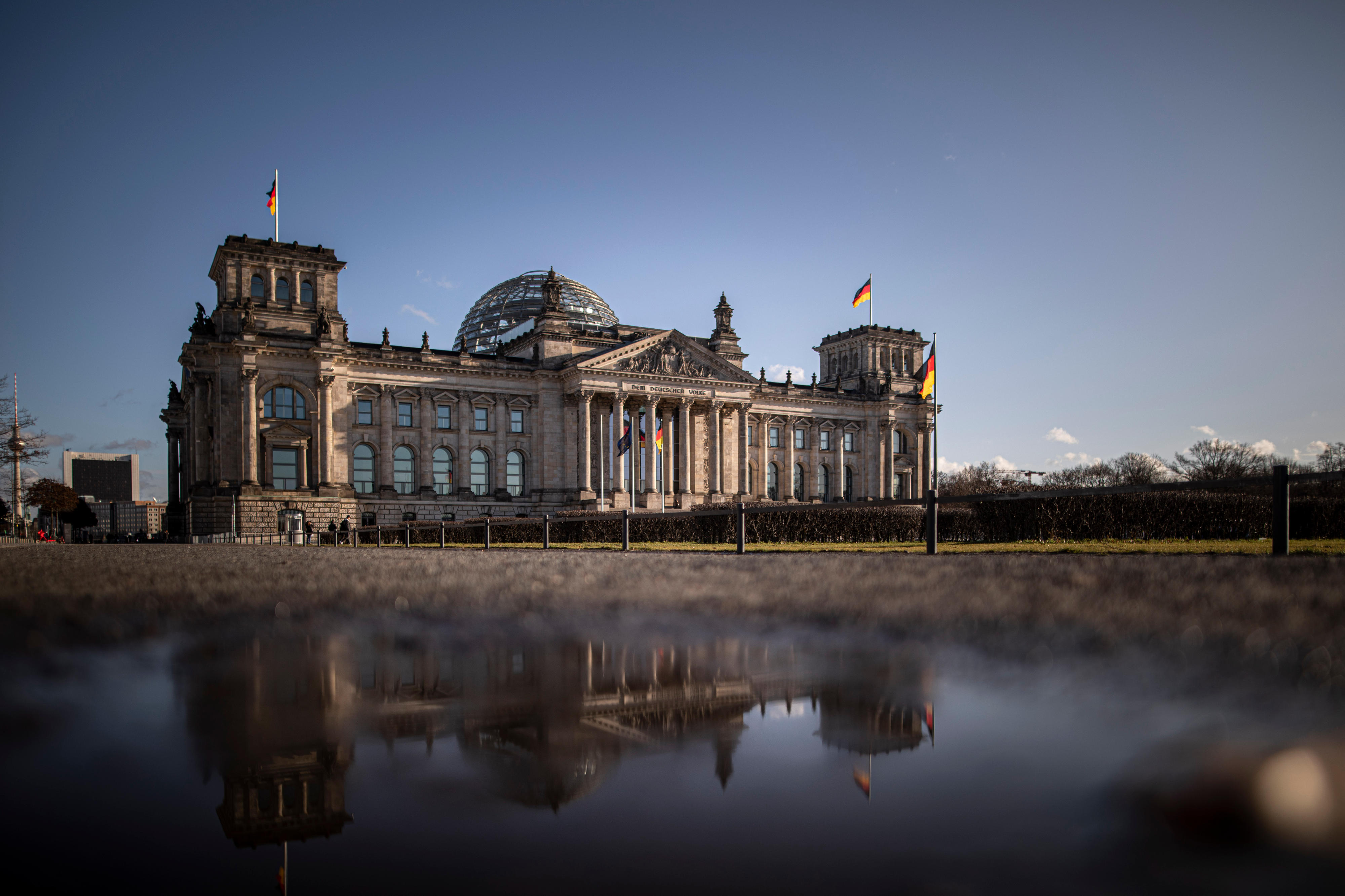Federal Ministry for Economic Cooperation and Development (BMZ) in Bonn
Copyright© Ute Grabowsky/photothek.net
Ministry Structure and organisation
There are currently 1,157 people working at the Federal Ministry for Economic Cooperation and Development (BMZ) in Germany. About half of the staff are located at the Ministry's main office in Bonn, with the other half located at the Berlin office. A certain number of BMZ staff are regularly seconded from the Ministry for a few years at a time to carry out development policy assignments in various parts of the world. The BMZ currently has around 130 posts abroad.
Leadership
The BMZ is headed by Minister Reem Alabali Radovan, two Parliamentary State Secretaries, Johann Saathoff and Bärbel Kofler and State Secretary Niels Annen (who has civil servant status).
The Directorates-General
The BMZ carries out a multitude of tasks. These include planning and programming German development cooperation, cooperating with civil society and the private sector, cooperating with partner countries, multilateral organisations and international development banks, and carrying out development information and education work.
The Ministry is divided into six directorates-general, which are responsible for the various tasks.
Ministry officials abroad
BMZ employees do not only work in Berlin and Bonn; the BMZ regularly seconds staff to work in its partner countries, at the European Union and in development banks and international organisations. Their role there is to coordinate development activities and to strengthen multilateral development policy respectively. Currently, some 130 BMZ staff are engaged in development work in postings abroad.
The BMZ seconds staff to the following embassies and consulates-general: Abidjan, Abuja, Accra, Addis Ababa, Algiers, Amman, Ankara, Antananarivo, Baghdad, Bamako, Beirut, Belgrade, Bogotá, Brasilia, Cairo, Chişinău [Kischinou], Cotonou, Dakar, Dar Es Salaam, Dhaka, Erbil, Freetown, Gaborone, Hanoi, Islamabad, Jakarta, Juba, Kabul, Kampala, Kathmandu, Kigali, Kinshasa, Kyiv, La Paz, Lilongwe, Lima, Lomé, Lusaka, Maputo, Mexico City, Nairobi, New Delhi, Niamey, Nouakchott, Ouagadougou, Phnom Penh, Pretoria, Pristina, Quito, Rabat, Ramallah, Tashkent, Tbilisi, Tirana, Tunis, Ulan-Bator, Vientiane, Windhoek, Yaoundé, Yerevan.
In addition, the BMZ also seconds staff to Germany’s permanent missions with international organisations or direct to international organisations such as the United Nations (in Geneva, New York, Rome and Vienna), the Organisation for Economic Co-operation and Development (in Paris) and the European Union (in Brussels).
The BMZ also has staff on the boards of the World Bank and of the African, Asian, Inter-American and Caribbean Development Banks and the International Fund for Agricultural Development.
Through its staff secondments to international organisations like the United Nations Development Programme (UNDP), the World Bank or to the European Union, the BMZ seeks to strengthen multilateral cooperation in the field development policy.
As at: 17/02/2026

